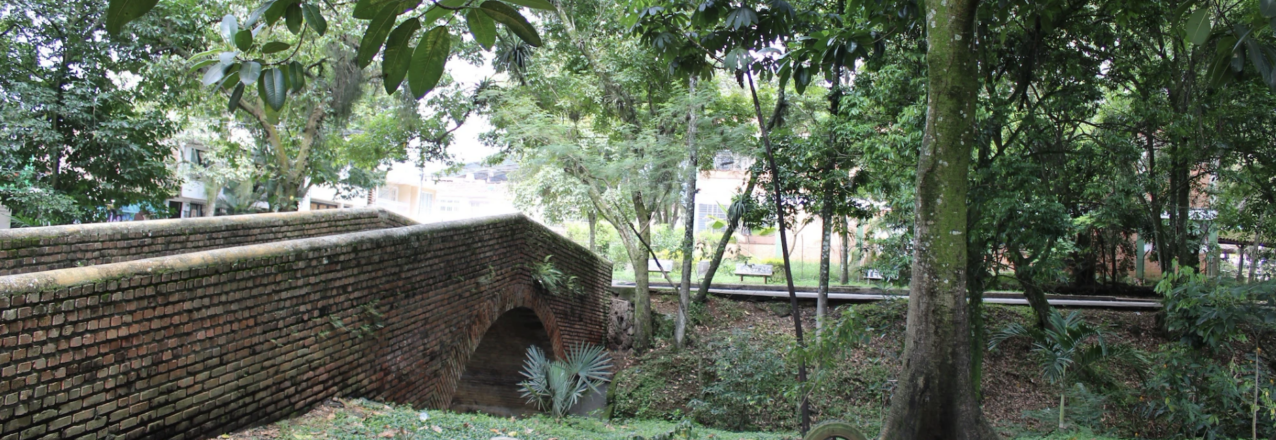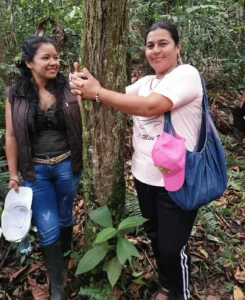Q&A with the Mayor of Santander de Quilichao, Lucy Amparo Guzmán
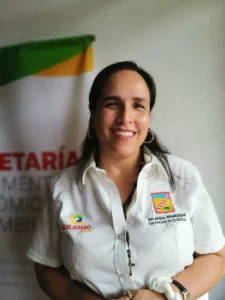
In 2016, with USAID support Santander de Quilichao created a Municipal Land Office in order to improve local land administration. Since then, it has titled hundreds of properties, including lands where health centers and schools are operating. This year, the Mayor is expanding the land office’s capacity to support the National Land Agency in a massive land formalization activity covering the entire municipality. In this interview, Mayor Lucy Amparo Guzmán talks about how the Municipal Land Office has transformed Santander de Quilichao and how it is supporting conservation initiatives.
What role does the Municipal Land Office play in formalizing property?
First, the Land Office helps families to formalize their land, offering them the fundamental right to own their property. With a land title, they can gain access to credit, which can strengthen and empower the family and their economy. Additionally, the Land Office helps with planning in the municipality in the sense that the Land Office titles public properties, such as schools. The Land Office helps us with reviewing land deeds in order to plan for, create, and present agriculture projects for investment, and it helps the municipality generate sustainability over time to have a dynamic property market on a permanent basis.
When you took office in 2020, what was the state of the Land Office?
The Land Office was already created, and this shows that the previous administration had the will to make property rights a priority. This year we have strengthened the Municipal Land Office by partnering with the USAID Land for Prosperity program. Thanks to USAID, the office is improved, including trained personnel and new equipment. We have a larger team than ever before, and we seek to continue expanding in order to have the capacity to respond to the public.
How do you evaluate the work of the Municipal Land Office during the previous administration?
I think the Land Office did important things once it was created. It established the first contact with the community, and this has facilitated our work today. The community values the work of the Land Office very much and they know, through it, that if these community spaces, like schools, roads, and health centers, do not have a valid property title in the name of the municipality, there is no way we can invest in these public services.
Santander de Quilichao has seen large investments from SENA and health institutions. How important is the Municipal Land Office to carry out these projects?
Titling a property gives a project the viability to obtain resources, that is why I always say that the Land Office generates urban development and planning, not only in the short term but in the medium and long term as well. As Mayor, I have to plan for the next mayor and the Municipal Land Office can help me do this.
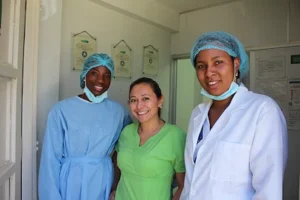
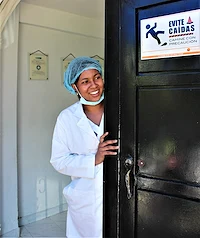
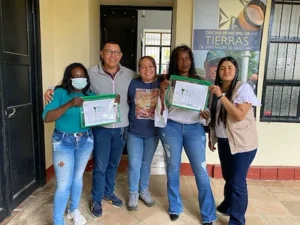
“Titling a property gives a project the viability to obtain resources.”
Santander de Quilichao is embarking on a process of formalizing and updating the cadaster for the entire municipality, called a parcel sweep. What does this exercise mean for the municipality?
The parcel sweep and updating of the cadaster provides all landowners the possibility of titling and registering their land as property, which is an individual right. For the municipality, which has more than 900 baldios, or government-owned, vacant lands, these properties can also be titled. In addition, the parcel sweep helps us to look at land use, including how and where to protect the environment and our water sources. All this allows us to project the municipality’s future and plan better.
How have you made strategic alliances with USAID and other actors to strengthen conservation efforts in Santander de Quilichao?
With Land for Prosperity, we are working on a partnership to protect the Palo River basin, a river that produces water for many municipalities in northern Cauca. Taking care of this river is fundamental for the people to have drinking water in the future. We are also care protecting the source of the Quilichao River. A key component of this alliance is to promote ecotourism and bird watching. In Santander de Quilichao we have some 900 hectares set aside for conservation and environmental protection. We are also generating a second reserve in one of the few remaining dry tropical forests in Colombia.
Does the Municipal Land Office also play a role in the creation of these nature reserves?
Yes, the lands that we have purchased are in the name of the municipality. This work to obtain these parcels goes back a long way in history. The Municipal Land Office helps us with the process of studying the title of the lands we want to acquire, which is retired to understand the land’s current status. In this regard, the Municipal Land Office is a center for facilitating conservation.
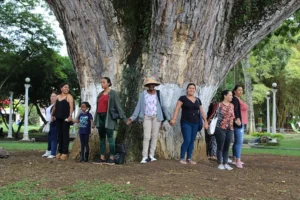
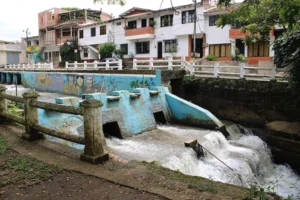
Is ecotourism an option to create revenue through conservation?
The first option is payment for environmental services, which includes a variety of activities, but we see above all that ecotourism is our future. We believe that in these nature reserves, the municipality has a lot to offer in terms of rural tourism, from hiking to bird watching and also tourism around the coffee process. And when we strengthen our tourism sector, we are generating new jobs for rural families.
What is the link between land legalization and economic development?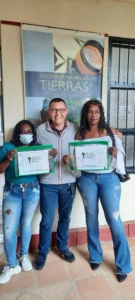
First, when people have property, they have the possibility to access credit at the bank and can improve their living conditions. Additionally, people who have a registered land title enjoy a stronger relationship with their own land. Thirdly, people can then prioritize agricultural projects and feel secure about investing in their land. Look at our coffee growers, here we have 4,000 coffee growing families, who generate a lot of income and move the local economy. Coffee is a product that generates peace and development.
This blog was originally published on the USAID Land for Prosperity Exposure page.


